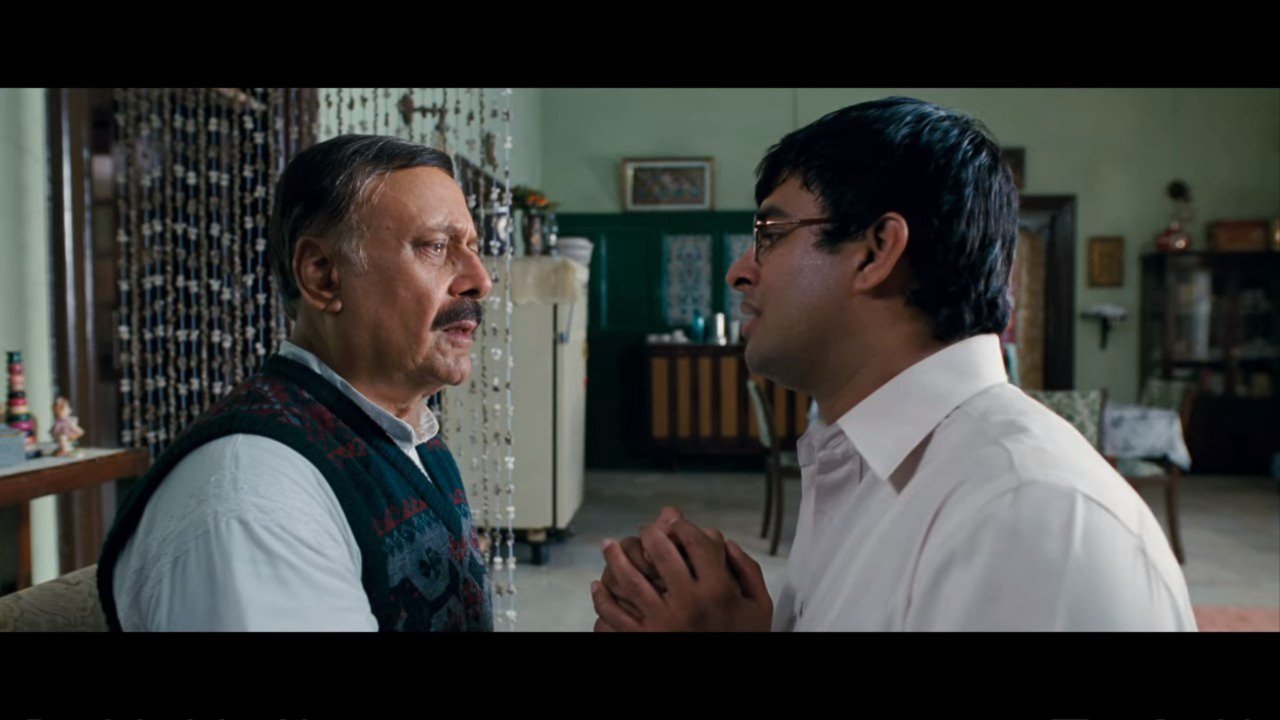Varun Grover’s All India Rank has this constant reiteration from the father of a JEE aspirant. “Naukri, izzat, aaraam sab hai IIT se. IIT ka ladka barmuda-chappal mein bhi sabhya lagta hai.” Respect is what it boils down to. When you come from a place where respect had to be earned by proving a point, any specific point that society deems acceptable, you go the extra mile. When you go the extra mile, you do everything in your power to get respect. And when this power is already very little, you tend to overwork. That extra mile becomes habit, and you never learn to stop.
Education for students in the country is not so much about choice, or at least their own choice. It stems from the kind of parenting that we are all used to. Parenting in India has a lot to do with tough love. Parents like their children strong in the literal sense of the word. Here, the intent is spoken about a lot – and brought up each time we question the idea of it. The process is appreciated for its success rate. Where success is measured purely by ranks. Your All India Rank truly becomes your compass – by which you’re judged as a person.

A number of videos on the internet recently, have been about parents being very attached to the marks that their kids score. In a post shared on X, the parents of a UPSC aspirant were seen breaking down at the premises of the exam. Their daughter was denied entry for being late (according to the reporting time). The idea of skipping a year and not being able to clear the UPSC prelims seemed unfathomable for them. The child, on the other hand, is more composed. She tells both her parents that there is going to be another chance – that they should not be so heartbroken.
What seems particularly daunting is the fact that the child was the one helping her parents. That the parents seemed more affected in the case. And how the responsibility of dealing with the loss of an opportunity and her parents’ heartbreak both fall on this one person. Precisely, a child who is still learning.
Emotions don’t get seen enough, because we don’t care for them as much. We do, but only of what is spoken. Then again, we don’t talk enough about feelings – so most of it remains unspoken. It’s a vicious cycle. Every time I discover a trait that comes to me because of how I was raised, especially when I do not enjoy that trait, I try and see my parents as people. They are flawed, they have had a certain upbringing; and like us, who they are is also about where they come from. There is no absolute control of how we turn out. In seeing them as people, I know that their struggles make them function a certain way. Especially when it comes to choosing a career path, and hence any and all decisions around education.
In seeing them as people, I’ve also realized that a lot of their choices stem from wanting stability. They come from a generation (and parents) who struggled to put food out on the table. Their asks were simple – and from our point-of-view, so are our parents’. To be able to achieve these simple things, they need to rely on a job that pays just enough to do that. They don’t want more. Even when they do end up with more, all they do is plan a future with it. Stability means money, and money means a career that can be trusted. TRUST is a big word. It brings you peace.

But that’s not it, you see. If it were just about the money, there are other professions. No, we also like to be ‘seen’ as better than the rest. We care about how it looks on the outside – and it HAS to look perfect, to the point that it gets suffocating. “Cream” is a common phrase we use to describe students who fall in the ‘best’ categories. We also know that it’s all so temporary – in the sense that it goes away if you stumble even a little bit. So understandably, it does not end with scoring a good rank in the UPSC or JEE exams. It becomes a constant thing, with a constant comparison between other children who are doing better. In another post, a father was seen telling his child that he does not expect much from him. “Ab tum kahin ke nahin rahe,” he added.
So, I get where most parents are coming from. However, it still does not justify how children are looked at as an assurance of their future. Of things that they wish to do – or the ideas of perfection that they follow. No child is responsible for the dreams, choices and opinions of their parents. It’s that simple. Which means that parenting can be grey – but there needs to be a fine line – there has to be a moral compass.
Parenting is associated with care. We are told to focus on the intent, even when the actions don’t seem right. But care, even if it is for the future, cannot take away from what its associated actions does to a person’s present. Parents may love in their own ways. We get it, we learn from it. But love can never be overbearing. Love can never make you feel less. Love is definitely not supposed to suffocate you. No matter how you show it.

















